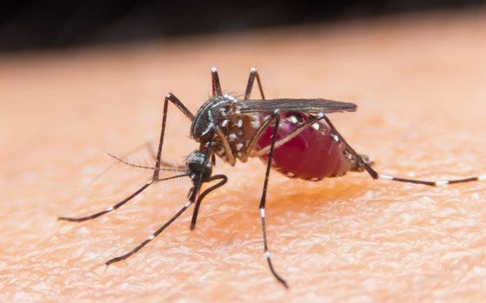Wh enyou hear the label “#1 Deadliest Creature in the World,” it's unlikely that you'd consider something as minuscule as the common mosquito to be the top contender. The fact is, though, that mosquitoes hit the leader board as the topmost cause for worldwide deaths. Tipping the scales at over one million deaths per year, it's astounding how deadly these insects actually are, all things considered.
Fun Facts About The Mosquito
There are over 3,000 different mosquito species, and every single one of them is a weak flier. Among the world's winged insects, mosquitoes sit on the bottom wrung when it comes to flight speed. They often depend on wind velocity to carry them long distances, and on a calm day can only travel at speeds of 1-1.5mph. Not very intimidating as the top killer, if you ask me!
Female mosquitoes are the culprits for your itchy welts. Both male and female mosquitoes live off of liquids such as plant nectar by using their extended mouthpart, or proboscis, to extract the juices. Females, on the other hand, require the proteins within animal blood to produce their eggs and thus completing their life cycle. On that note, mosquitoes have surprisingly short lifespans. If they're not consumed by natural predators, or murdered by irritable food sources, they rarely make it past the two-month mark.
The Dangers Of A Bay Area Mosquito Infestation
You may be wondering how these insects are classified as the number one cause of death worldwide. They don't have deadly venom, they aren't gigantic carnivorous beasts with a lust for blood, they don't have razor-sharp claws or fangs with which to bite or scratch you to death. The reason for this classification lies squarely upon their skin-penetrating proboscis; they have a knack for accumulating deadly diseases.
It usually depends on the species, and especially the region, but mosquitoes have been known to spread:
- Zika Virus
- West Nile Virus
- Chikungunya Virus
- Dengue Fever
- Multiple strains of Encephalitis Virus
- Malaria
- Yellow Fever
Why Would Mosquitoes Invade My Bay Area Property?
The biggest attractive attributes to a property for mosquito infestations are lush vegetation and standing water sources. Overgrown lawns, unmaintained shrubs and bushes, and excessive garden growth are prime spots for mosquitoes to hide during sweltering days. Standing water is a must-have for expecting mosquito parents, as the majority of a mosquito life cycle is spent submerged in water. This includes tree stumps and hollows, clogged gutters, difficult draining puddles, bowls and buckets left outside, wading pools, even bird feeders.
There are ways to eliminate these enticing qualities, though:
- Trim back shrubs, bushes, and gardens
- Empty and/or refresh containers that collect water, such as birdbaths, wading pools, and buckets left outside
- Regularly maintain your lawn care; even piles of cut grass and leaves will harbor unwanted bloodsuckers
- Add easily-draining soil, and even draining ditches, to your property to reduce standing water
- Inspect and regularly remove debris from your gutter
How To Handle A Mosquito Infestation On My Bay Area Property
If you find that your Bay Area property has an overabundance of vampiric insects, despite any precautions you may have implemented, then it's time to call your local pest control company. At Bay Pest Solution, we know that your main concern is keeping you and your loved ones safe, and we know just how to help. With over four decades of pest control experience, we utilize top-of-the-line pest control procedures in all of our treatments, and we always offer a 30-day unlimited guarantee. If you notice a persistent infestation after we've treated your home, we'll come right back out and treat your property as many times as it takes to get rid of your problem with no additional fee. Don't let mosquitoes ruin your evening barbecues. Give us a call today to start discussing your pest control options.

